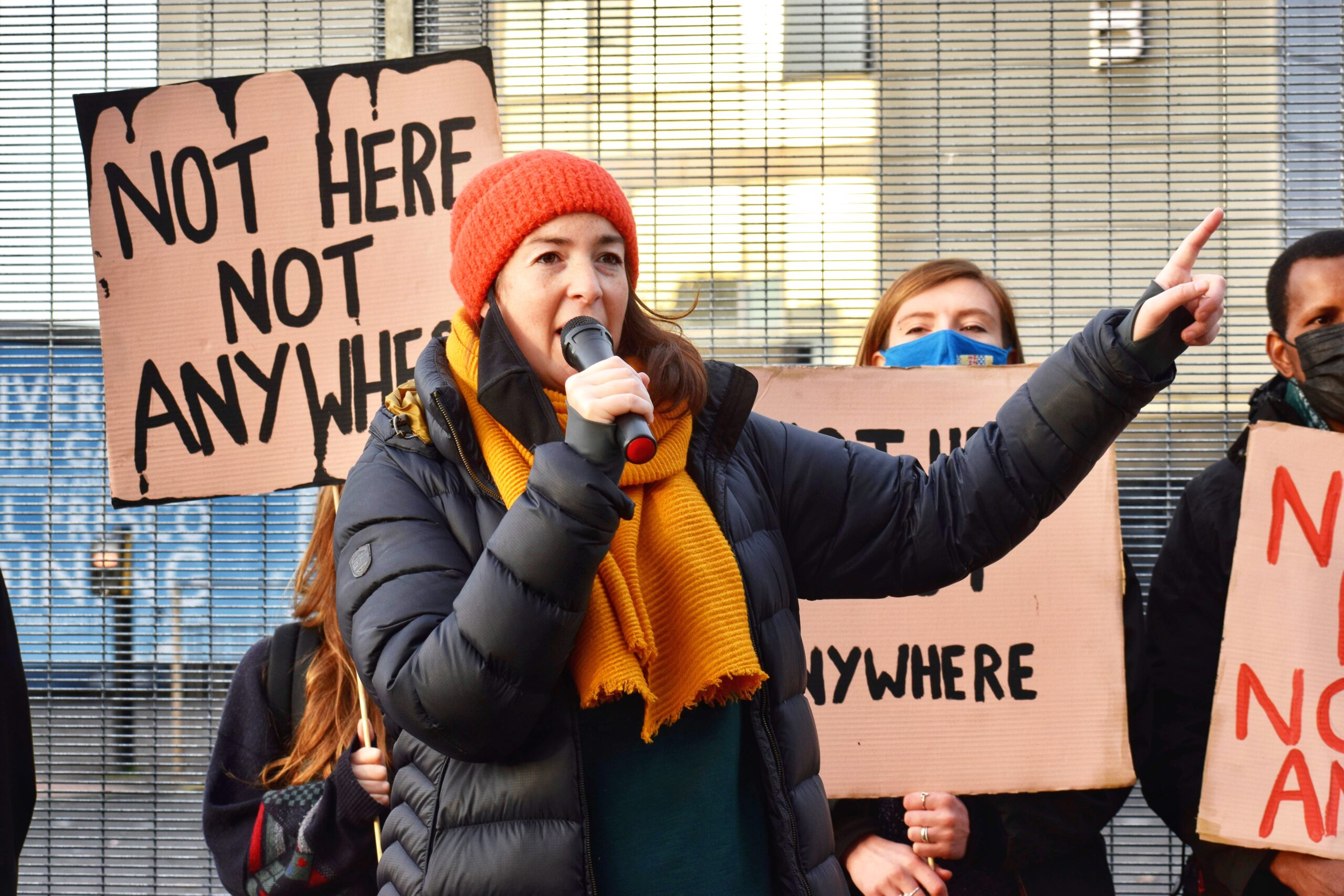
Trade Unions and campaigners say upcoming Climate Plan must step up action to reduce emissions and protect workers
At a conference today (Tuesday 13 December) the Scottish Trade Union Congress (STUC) and Friends of the Earth Scotland will announce plans to work closely together on industrial policies which can create a Just Transition to a low-carbon economy.
In a joint statement (see Notes) they share the concern that plans so far have been too slow and not ambitious enough – supported also by WWF Scotland and the Unite Scotland, UNISON, PCS, UCATT, UCU and CWU unions. As the new Scottish Energy Strategy and Climate Change Plan are being drafted they will be pressing for bold measures which show that the Scottish Government is determined to make change happen.
The conference, ‘How to get a Just Transition to a low-carbon economy in Scotland’ will hear international speakers and economics experts map out the changes to be made and how the powers to make them happen can be deployed by government acting decisively and in partnership.
Dr Richard Dixon, Director of Friends of the Earth Scotland commented,
“We should be responding to climate change in ways which protect workers’ livelihoods, create a new industrial base and deliver a fairer Scotland as well as rapidly reduce our emissions. There will be hundreds of thousands of new jobs in a low-carbon economy.
“So far we have seen good growth in renewable electricity but progress on the transformation of other parts of our economy has been slow. The forthcoming Climate Change Plan will be key. We need ambitious policies for decarbonising transport and heating, for example, which will also provide decent jobs, cleaner streets and warmer homes.”
Stephen Boyd, Assistant General Secretary of the STUC commented,
“The transition to a low-carbon economy, done the right way, has the potential to increase employment and create a more dynamic and resilient economy.
“However experience to date confirms that a more active and interventionist approach will be necessary to maximise economic and employment benefits”.
In an implicit challenge to the ways in which economic development has been governed in Scotland and the UK, the joint statement says that where necessary to secure change at sufficient pace and scale, options for public and community ownership or partial stakes in flagship projects and enterprises should be pursued; and that employment and social benefits should be secured through creation of local supply chains, community benefit clauses and local ownership.
ENDS
NOTES TO EDITORS
The conference will take place at the STUC offices in Glasgow today from 11am https://www.eventbrite.co.uk/e/how-to-get-a-just-transition-to-a-low-car…
Conference Programme can be viewed at https://www.dropbox.com/s/ig5j5lxw92u5t8v/JUST%20TRANSITION%20programme….
JOINT STATEMENT ON JUST TRANSITION
It’s time for a Just Transition in Scotland, moving to a modern low-carbon economy in ways which protect workers’ livelihoods, create a new industrial base and deliver a fairer Scotland. The need for action is urgent in order to avert the environmental and economic costs of climate change and to rebalance the economy to one which provides enough decent jobs making things in clean ways.
We share a concern that plans for this transition so far have not been ambitious enough and that progress has been slow except regarding on-shore wind. There has been little planning to ensure the protection of the people most affected, in particular those who work in sectors reliant on fossil fuels. It is necessary to confront the danger of losing a large part of the industrial base as employment in traditional sectors declines. Workers, if losing their job in these sectors, should be able to redeploy to new sectors and opportunities for retraining must be expanded.
As a new Scottish Energy Strategy and Climate Change Plan are being drafted we hope to see a pipeline of ambitious investment projects and the capacity to finance them put in place. Scotland has the opportunity to create an example which other nations might follow. However fine words and targets are not sufficient on their own and experience to date shows that the growth of renewable energy generation does not necessarily result in the creation of new manufacturing and engineering capacity and employment in Scotland. Specific measures are needed to ensure that these benefits accrue.
The government should take a decisive lead with plans to transform key sectors, for example electricity generation, energy storage, transport infrastructure, energy efficiency and sustainable heating for homes and businesses. Where necessary to secure change at sufficient pace and scale, options for public and community ownership or partial stakes in flagship projects and enterprises should be pursued.
Employment and social benefits for Scotland, and in particular for communities most affected by industrial change, should be secured through creation of local supply chains, community benefit clauses and local ownership. Social justice and equity have to be built in, with no-one left behind in this transition to economic and environmental sustainability.
We aim to create a shared understanding of the challenges and opportunities, invite others to join our commitment to promoting a just transition and help assemble the powers, finance and enthusiasm to ensure it happens in Scotland.
Friends of the Earth Scotland
Scottish Trade Union Congress
Communication Workers Union
Public and Commercial Services Union
Unite Scotland
UNISON Scotland
University and Colleges Union
WWF Scotland
***STATEMENT ENDS***
Friends of the Earth Scotland is
* Scotland's leading environmental campaigning organisation
* An independent Scottish charity with a network of thousands of supporters and active local groups across Scotland
* Part of the largest grassroots environmental network in the world, uniting over 2 million supporters, 74 national member groups, and some 5,000 local activist groups.
www.foe-scotland.org.uk
